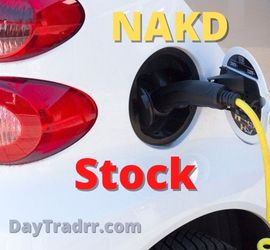What Are Weekly Options?
 Weekly options function exactly like monthly options, with the exception that they only exist for eight days. They are released every Thursday and expire eight days later on Friday with adjustments for holidays. Previously, investors could choose from 12 monthly expirations on the third Friday of each month. Now, their selection is expanded to 52 expirations every year.
Weekly options function exactly like monthly options, with the exception that they only exist for eight days. They are released every Thursday and expire eight days later on Friday with adjustments for holidays. Previously, investors could choose from 12 monthly expirations on the third Friday of each month. Now, their selection is expanded to 52 expirations every year.
Options are contracts that provide the owner the right to sell or buy at a certain price and date. Weekly options are similar to ordinary options in almost every way, except they are for a shorter period of time. Weekly options’ short-term emphasis allows for rapid, affordable, and focused reactions to tiny movements in the underlying stock. For investors with shorter trading timeframes, weekly options offer a week’s worth of value before expiration on Fridays.
Weekly options enable traders to keep up with the fast pace of today’s stock market. They allow investors to purchase and sell weekly positions when existing transactions expire out-of-the-money (OTM), worthless, or in-the-money (ITM). Weekly options require a bit of precision in execution. However, if done correctly, investors may trade weekly on a recurring basis and reap the most reward. Furthermore, weekly options are short-term (8 days). As a result, investment funds will not be locked up for an extended period of time.
Trading Weekly Options
The Chicago Board Options Exchange (CBOE) first issued regular call options in 1973. The put option was established in 1977. They have proven to be incredibly popular since trade volume has increased significantly over the years. The Chicago Board Options Exchange (CBOE) initiated a trial program using weekly options in 2005, 32 years after launching the call option.
Weekly Options Strategy
Almost any technique that can be used with longer-dated options may also be implemented with weekly options. Weeklys are made to order for premium sellers who want to take advantage of an option’s fast accelerated time decay curve in its last week of existence. Option writers can now be paid 52 times each year rather than 12. Popular strategies are possible like selling naked puts and calls, covered calls, spreads, condors, and others. They all function with weekly options the same way they do with monthly options. However, traders can experience a shorter timeframe and accelerated action.
Weekly Options – Advantages and Disadvantages
Advantages
- Short-term focus – Weekly expiry enables very short-term bets on a particular news item or anticipated sudden price movement. This is something a trader can’t usually pull off with monthly positions. For example, assume it’s the first week of the month and you expect ABC stock to move because their earnings report is expected this week. While you may purchase or sell the ABC monthlies to profit from your hunch, you would be risking three weeks of premium if you were incorrect and ABC moved against you. With a weekly expiry, you just have to risk one week’s worth of premium. On the one hand, this might save you money if you’re incorrect. On the other hand, it could provide you with a big return if you’re right.
- Tighter bid-ask spreads – The open interest and volume of weeklys are sufficient to yield significant bid-ask spreads. However, they are often not as high as monthly expirations. There is a well-known pinning action that occurs in monthly option positions, in which a stock tends to migrate toward a strike price on expiry day. This pinning action does not appear to occur as much or as strongly with weeklys.
Disadvantages
- Little room for adjustment – Their shorter lifespan and quick time decay leave little time to rectify a trade that has gone against you. There is just not enough time to alter the strikes or just wait for some type of mean revision in the underlying security.
- Potentially limited spreads – While overall open interest and volume are high, this is not always the case for each strike in the weekly series. Some strikes will have extremely large spreads, which is bad for short-term strategy.
Weekly Options – Examples
Weekly options are available for the following indexes:
- CBOE Dow Jones Industrial Average Index (DJX)
- S&P 500 Index (SPX)
Popular exchange-traded funds (ETFs) with weekly options:
- Financial Select Sector SPDR ETF (XLF)
- iShares MSCI Emerging Markets Index ETF(EEM)
- iShares Russell 2000 Index Fund (IWM)
- PowerShares QQQ (QQQQ)
- SPDR Gold Trust ETF (GLD)
- SPDR S&P 500 ETF (SPY)
Weekly Options Trading Hours
Trading Hours: Weekly options will have the same trading hours as monthly options for that product. Equity options – 9:30 a.m. to 4:00 p.m. ET. ETF options will trade the same hours as the underlying ETF. For most ETFs, this is 9:30 a.m. to 4:00 p.m. ET. For certain broad-based ETFs, 9:30 a.m. to 4:15 p.m. ET. Broad-based indexes – 9:30 a.m. to 4:15 p.m. ET. Industry-specific indexes – 9:30 a.m. to 4:00 p.m. ET. Expiring weekly options on some ETF and index products may cease trading at 4 p.m. ET, or 15 minutes before the non-expiring options on that same class cease trading. (Source: theocc.com)
Frequently Asked Questions
How can you tell weekly options from standard options?
Option symbols include the expiry date. Therefore, refer to the explicit numerical calendar day of expiration in each contract you trade. Data suppliers present this information in a variety of formats. Nevertheless, it is your obligation to input the exact order information for the precise call or put you wish to trade. If you have any questions regarding the product you’re trading, the expiration date, the symbology key (if necessary), or any other information you’re inputting, contact your brokerage agent before placing your order.
When do exchanges list weekly options?
Weekly option series are listed each Thursday and expire the following Friday, except when the next Friday is a normal Expiry Friday (the third Friday of the month) or a quarterly expiration. If the next Friday is an OCC holiday, the weekly option series expires on the Thursday before the holiday. The exchanges do not offer new weekly options that expire within the typical option expiry week of monthly options (the third Friday of each month). In other words, the exchanges do not publish new weekly options on the second Thursday of the month. And, they do not trade weekly options during the next normal expiry week until the new series is posted on the expiration Thursday.
Where can I find which weekly options are trading?
Because weekly open interest expires every week, the exchanges can offer various items week after week. Although this has not been a common practice, check with your brokerage company or exchange websites.
Will more weekly options be added in the future?
Weekly listings vary every week. This is especially important because the option’s expiry term is short. The CBOE is constantly updating appealing weekly options in order to enhance trading activity. This is why, in recent years, traders have witnessed a huge increase in the popularity of weekly options. Each week, high-volume stocks are the most likely to make it to the new weekly options list. This provides trustworthy listings with an active trading base for option buyers and sellers. Furthermore, the weekly choices may contain stocks that are expected to make important announcements in the near future.
Up Next: What Is an Option Premium?

An option premium is the market price an investor must pay to purchase an options contract from a seller or writer. In other words, it is the amount paid by an option buyer to an option seller for an option contract. An option contract is a type of derivative instrument that gives the buyer the right to purchase (call option) or sell (put option) a group of underlying securities. Typically, an options contract is for 100 shares of a company. The options contract specifies a predetermined price to buy or sell the security on or before the contract’s expiration date.
Consider a premium to be the purchase price of an option contract. It is therefore the profit made by the seller (writer) of an option contract to another party. Option premiums that are in the money are made up of two components: intrinsic and extrinsic value. The premiums on out-of-the-money options are entirely made up of extrinsic value. The premium for stock options is expressed as a dollar amount per share. Most contracts imply a commitment of 100 shares.




